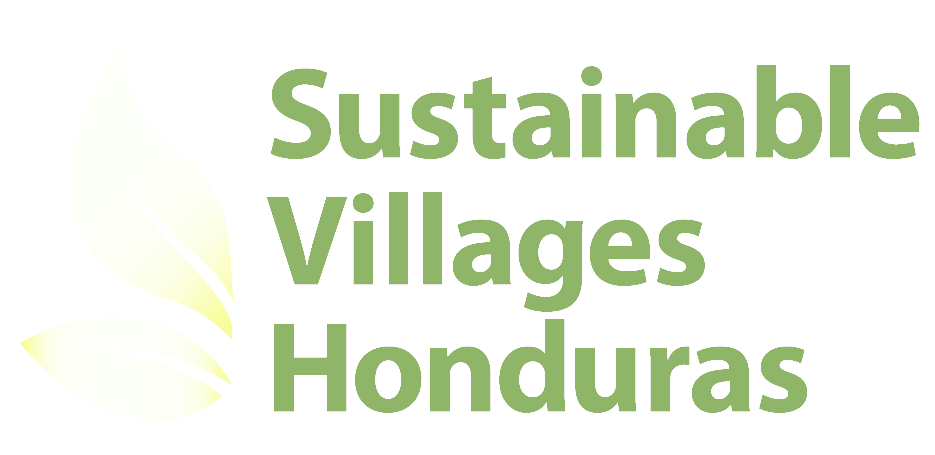Increase family ACCESS TO adequate and safe WATER SOURCES
Abundant flow of water in the El Zapotal watershed serves seven SVH villages.Harmful chemicals and illegal cutting of the surrounding forest are serious problems.
As everywhere else, water is essential to life. However, getting water to each family is much more complicated than in the U.S.
It is not the responsibility of any government agency. Instead, each community water management board is responsible for assessing family water supplies and for managing village water systems.
Community members build dams in the watershed near the top of the El Zapotal mountain and pipes to bring that water to each community. Community members maintain a tank to store the water and pipes to distribute the water to each home. Too much pressure in the pipes and they will break. Small openings let contaminants enter the tank and pipes and the water becomes contaminated. Providing dependable, healthy water is a challenge.
The municipal and Federal governments are critical to another goal—that of protecting the El Zapotal watershed that supplies water to seven of the Sustainable Villages Honduras (SVH) villages. Members of the village water management boards have formed an association, the Chinda Association of Water Mangement Boards.
In Spring 2021, Vecinos Honduras engaged an experienced consultant, engineer Cesar Sanchez, to map the El Zapotal watershed, complete an assessment of its characteristics, such as plants, animals and soil, and develop a plan of action. This report was completed in August 2021.
In Winter 2022, the report and request for a watershed protectorate were accepted by the Honduran Institute for Forest Conservation (ICF) as technically complete.
In Summer 2022, a legal path to the Protectorate was developed. First, the Mayor of Chinda signed the request for the Protectorate. Then the ICF lawyers decided that they could use a new Honduran law giving priority to approve a protectorate for Public Benefits (such as water availability). The Protectorate for the El Zapotal Watershed is expected to be declared sometime in early 2023.
Association of Chinda Water Management Board being signed in by the Mayor of Chinda, Mirian Lopez.
In general, access to water is fairly good in the SVH villages:
In 2019 the community of El Zapotal had to increase funding and put many volunteer hours in to repair the dams and pipes shown here at the top of the El Zapotal watershed in a photo dated 2018.
Out of the 8 communities served by SVH, the water supply system in 7 communities (La Majada, El Tulito, El Caulotal, El Chol, El Zapotal, Barrio Nuevo and El Limón) in good condition and they have a water maintenance plan in place
Since March 2020, families in La Majada have been paying an increase in monthly water fee from 30 to 35 lempiras (about $1.40) to purchase new pipes and make repairs.
However, in El Tule the pipeline to the village and within the village is in poor condition and so the El Tule community must ration water.
A convocation of the families in El Tule to approve the use of water meters by every family, failed to reach the required quorum of a majority of families.
Water for People (WFP), another NGO, will provide the expertise and funding for the extensive repairs necessary in El Tule if the community votes to use water meters at a second planned convocation.
Some problems are beyond the expertise or financial resources of the water management boards. For example, pathological bacteria require higher levels of chlorination. For such problems, the communities can apply for funding from other non-profits or the government. Roy Lara, the SVH Coordinator, assists the water management boards in preparing the, often difficult, applications for such assistance. Idania Reyes, the SVH Facilitator, trains each of the water management boards in the many skills for an effective organization: running a meeting, setting priorities, and financial management.
Introducing Luis Linares, a Water Management Board Leader
Luis Linares, in his field of robust corn plants, promotes organic agriculture in addition to promoting an adequate water system.
A local water management board cannot do its work alone. It must get cooperation, volunteer labor, and approval for adequate fees for the upkeep of the water system. Luis Linares, a farmer in the village of La Majada, has the technical and leaderships skills to be an effective president of the Water Management Board of La Majada. He has built up the respect of other residents to gain approval of a fee increase to improve the water system.
Fields of corn dried up during the many months of drought in 2018.
Chinda families have limited protection from climate change. Over many years climate change has become a larger and larger problem. Droughts have become a way of life with difficult repercussions for farming communities in Honduras. Poor harvests and hunger meant families couldn’t feed themselves and some migrated to the U.S. The success of adopting new sustainable agricultural techniques and drought resistant seeds saved Chinda families from making this difficult decision.
Two long term strategies could mitigate the effects of climate change in the future: enacting legal protections from illegal logging and guaranteeing access to the mountain aquifers for the village families.





